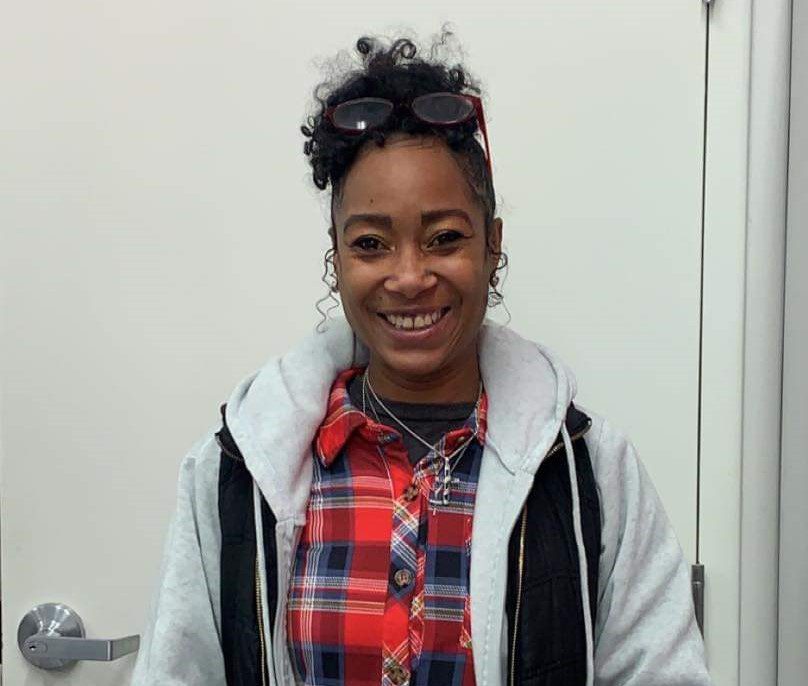Kelly Garrett
Building a Stronger Heart to Beat Breast Cancer
When Kelly Garrett felt a small lump in her breast, the fear she felt was so intense she couldn’t bring herself to talk about it. For more than a year, she worried in silence, feeling the mass steadily grow.
“One day, I felt a little lump. Six months later, it was a little bit bigger. After a year, it felt like a rock that was big enough to lift my hand up when I laid it on my chest,” said Garrett, 44. “I was so terrified that I wouldn’t tell anyone.”
Eventually, in October 2019, she finally confided in a co-worker who encouraged her to see a doctor at St. Elizabeth Healthcare. After a mammogram and biopsy, Garrett’s worst fears were confirmed – she had triple- positive breast cancer.
Only 10% of breast cancer cases are considered triple-positive. This is a form of the breast cancer which grows in response to estrogen, progesterone, and a growth promoting protein outside the breast cells called HER2. To treat this type of breast cancer, she needed chemotherapy/HER2 targeted treatment, surgery, radiation, and endocrine therapy.
She never anticipated the treatment would cause problems.

Discover more about Cardio-Oncology
If you are a cancer patient and have concerns about how your treatment may impact your heart health, consider a consult with a cardio-oncologist.
To schedule an appointment call (859) 905-3073.
Adding Heart Failure to Breast Cancer Diagnosis
Garrett’s doctor referred her to Brooke Phillips, MD, a medical oncologist, to design the best course of treatment. Because her cancer was triple-positive, Dr. Phillips recommended chemotherapy combined with 2 drugs – trastuzumab and pertuzumab – specifically designed to control cancer cells that contain HER2.
Garrett responded very well to these treatments and then proceeded with surgery followed by radiation. As expected, she experienced some of the fatigue common among cancer patients, but something else seemed wrong.
“My energy level was zero. I would walk from my car to the front porch and felt exhausted,” she said. “At 41, I could’ve run a marathon. During my treatment, though, after just 10 minutes of walking, I was tired.”
Dr. Phillips suspected the chemotherapy drugs as the culprits. While trastuzumab and pertuzumab effectively combat cancer, they can weaken the heart muscle and put patients at greater risk for heart failure. To know for sure, in July 2020, she ordered an echocardiogram, an ultrasound test that would measure Garrett’s heart function.
Normal heart function ranges from 50% to 55%. Garrett’s had fallen to between 35% and 40%. She also had mildly elevated blood pressure.
“The test showed her heart function had, in fact, declined,” Dr. Phillips said. “But, even with that reduction, we didn’t want to stop her breast cancer treatment as these HER2 targeted treatments were saving her life. We needed to do something that would maximize her heart function so we could continue the targeted treatment.”
Cardio-Oncology at St. Elizabeth
Reversing chemotherapy’s toll on Garrett’s heart meant adding more medication to her daily treatment. To find the right combination, Dr. Phillips sent her to a cardio-oncologist, Darek Sanford, MD.
“Women can develop heart failure during their treatment course for cancer,” he said, noting this problem affects approximately 5% of breast cancer patients. “The minute you know about a problem like this, you must take steps to get rid of it.”
Based on her test results, he prescribed two medications that protect against heart failure. The angiotensin receptor blocker (ARB) Losartan lowered her blood pressure, and the beta-blocker Metoprolol reduced her risk of heart failure.
Initially, Dr. Sanford prescribed a half-pill of each medication twice a day and later increased the dose to one pill of each twice daily. Garrett also followed Dr. Sanford’s instructions to drink more water, eat healthier foods and slowly increase her exercise. The efforts were successful. Within three months, a follow-up echocardiogram revealed Garrett’s heart function rebounded to 50% to 55%.
With those improvements, all her energy returned.
“Now, I’m a walker. I have a step counter, and I look for places where I can just walk around,” she said. “I’m also a water baby – no more pop or caffeine. This is my life. My heart health has gone up tremendously.”
A Stronger Heart to Beat Cancer
With her heart function stabilized, Garrett completed her cancer treatment. Today, she is cancer-free. She thinks about her providers and everyone at St. Elizabeth and says they are angels.
To prevent a recurrence, she’s on a 10-year regimen of tamoxifen, an oral medication that blocks estrogen’s effects in hormone receptor-positive breast cancer. Dr. Sanford will follow up with her every other year in his survivorship clinic to monitor her blood pressure, but she doesn’t need another echocardiogram for five years.
“Kelly was someone at high risk that we identified and started on medications,” Dr. Sanford said. “By adding the heart medications to her treatment plan, she could complete her entire treatment without stopping any therapy. Hers is exactly the outcome we want to have with cardio-oncology.”
If you are being treated for cancer, ask your doctor about risks to your heart from treatment, and get specialized help at St. Elizabeth if you need it. Learn more about Cardio-Oncology services at St. Elizabeth.

